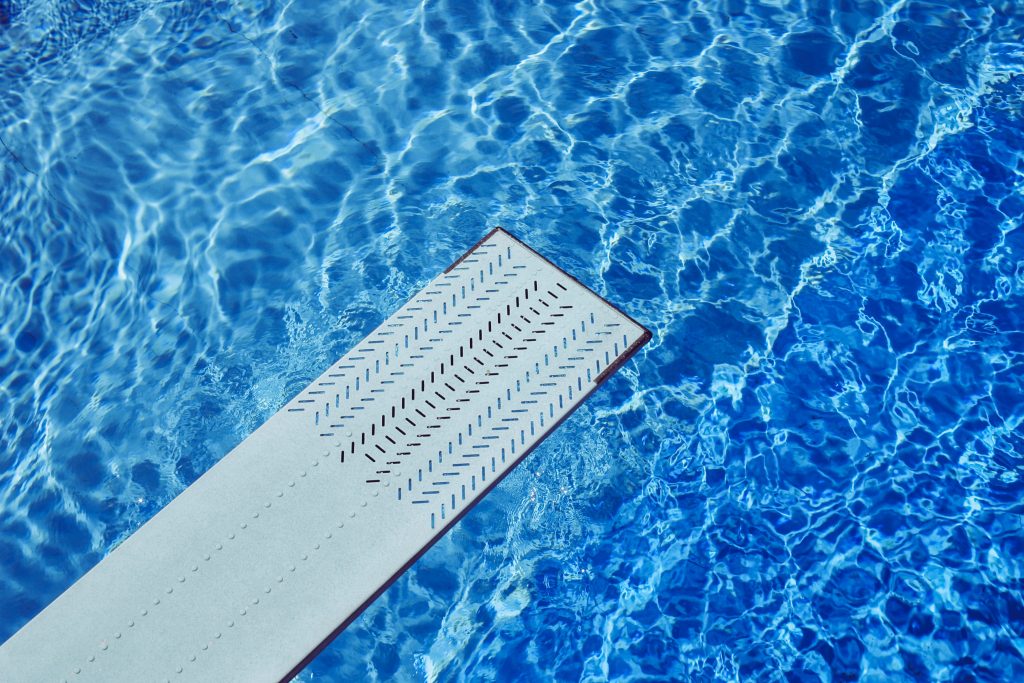Getting a vinyl pool is a big decision. A lot of us have zero ideas about vinyl pools and vinyl pool liners and it is a pretty hefty investment. That is why it is always a good idea to ask questions. Only when you get the answers to these questions can we make a better decision. So what are the top questions about vinyl pools? What do you need to know about vinyl pool liners before getting them? Here are a few of these questions and the answers that we are all looking for.
Why Should I Choose a Vinyl Pool?
More homeowners choose vinyl swimming pools than any other type of pool. The many reasons for this include the following:
- Cost – Building a vinyl-lined pool costs less than building from other materials offered by the pool industry, such as concrete, fiberglass, or gunite. Remember, it isn’t just installation cost that makes pools lined with these other substances more expensive; they also cost more to maintain and eventually repair, reface, or replace.
- Maintenance – This is necessary whatever type of pool you have, but because vinyl pool surfaces aren’t porous, they require less maintenance than other types of pools. Today’s vinyl pool liners are extremely strong, and they are easy to clean and don’t need too many harsh chemicals that can damage pool surfaces. Vinyl’s smoothness also makes it harder for algae to become established in a pool, minimizing this kind of costly clean-up.
- Design choices – Vinyl pools used to be just blue rectangles or ovals. Today, however, pool owners’ options are infinite. Pools lined with vinyl can be constructed in all shapes and sizes. They can be much deeper than their counterparts, and their designs can include features like spill-over pools, spas, and shallow ledges. Vinyl pool liners manufactured in a huge variety of colors are now available, and they can also include tile patterns and more intricate liner patterns. If pool owners become tired of their vinyl liner’s looks, it can be replaced!
- Comfort – One of the nicest things about vinyl pool liners is the way they feel. Anyone who has scraped toes on the bottom of a concrete pool knows it is no fun. Vinyl pool surfaces feel as smooth as bathtubs, and swimmers can climb out of their pools onto vinyl borders without fear of scraping their knees.
- Installation time – Once a homeowner has decided to build a pool, everyone in the house is anxious to start swimming in it! The short installation time for a vinyl-lined pool is one of its major selling points. To learn more about installation time, read below.
How Fast Can a Vinyl Pool Be Installed?
The great news for homeowners who want to enjoy a summer in the pool is that installing a vinyl pool takes significantly less time than installing one made of gunite, fiberglass, or concrete. Pools lined with vinyl can take as little as 2 to 4 weeks to complete, as opposed to 6 to 8 weeks for other construction materials.
How Long Does a Vinyl Pool Liner Last?
Pool owners can expect up to 10 to 15 years of use from a vinyl pool liner. However, this depends on several factors, including:
- How thick the vinyl pool liner is – Thicker liners are more expensive than thinner ones, but they usually last longer. Ideally, vinyl pool liners will be 27 ml or thicker. Be aware that embossed pool liners are only as durable as the thinnest part of the pattern, even though their thickness is measured by the thickest part.
- How much the pool is used – The more the pool is used, the more the pool liner will suffer from wear and tear.
- Amount of sunlight the pool is exposed to – The more direct sunlight, the greater the sun damage to the pool’s lining.
- Kinds of chemicals used in pool upkeep – The harsher the chemical, the more the vinyl corrodes.
- The regularity of maintenance – Regular maintenance helps extend the life of vinyl pool liners.
Can You Paint a Vinyl Pool Liner?
Yes! The good news is that homeowners can paint their vinyl pool liners. Painting the liner is a relatively easy way to update the appearance of a pool, but it is vital to purchase the right paint for the job. Vinyl swimming pool liners can be repainted using epoxy paints, premium acrylic paints, and water-based acrylic paints. Environmental concerns about the use of chlorinated rubber paints have caused their use to be largely phased out. Homeowners must also ensure the liner is dry and that any loose materials or old paint are removed before painting.
 How Much Does It Cost to Change My Vinyl Pool Liner?
How Much Does It Cost to Change My Vinyl Pool Liner?
Sometimes damaged vinyl pool liners can be repaired, with the price starting at $350 to fix a small tear. When damage is severe, or the vinyl pool liner has just reached the end of its useful life, installation of a replacement liner for an in-ground pool can cost between $1,000 and $2,500. For above-ground pool liners, the cost is lower, starting at $250 and going up to $800.
On top of the installation price, you still have to think about the cost of the liner. For underground pool liners, this generally ranges from $700 to $1,500, and for above-ground pool liners, it will be less.
Remember that after you have replaced the vinyl pool liner, the pool must be refilled and its chemicals renewed, so pool owners must add this additional charge to their estimates.
The costs of repairing or replacing vinyl pools vary according to many things, such as the following:
- The size of the pool and its shape – The bigger the pool, the more costly replacing the liner will be. An unusual shape will also add to the cost.
- The condition of the pool – If the walls, coving (edging), and/or floors need to be repaired to provide a good surface for the new vinyl lining, the installation cost will rise.
- Timing of the installation – During busy periods – such as spring, when everyone is preparing for a summer in their yards – costs can go up.
- Where the pool is located – Some areas have higher labor costs than others.
- The pool installation company’s rates – Some companies charge more than others. However, be aware that choosing the cheapest estimate isn’t always a good idea. It is important that whichever company a homeowner chooses for vinyl pool lining replacement has extensive experience and is well qualified to do the job.








